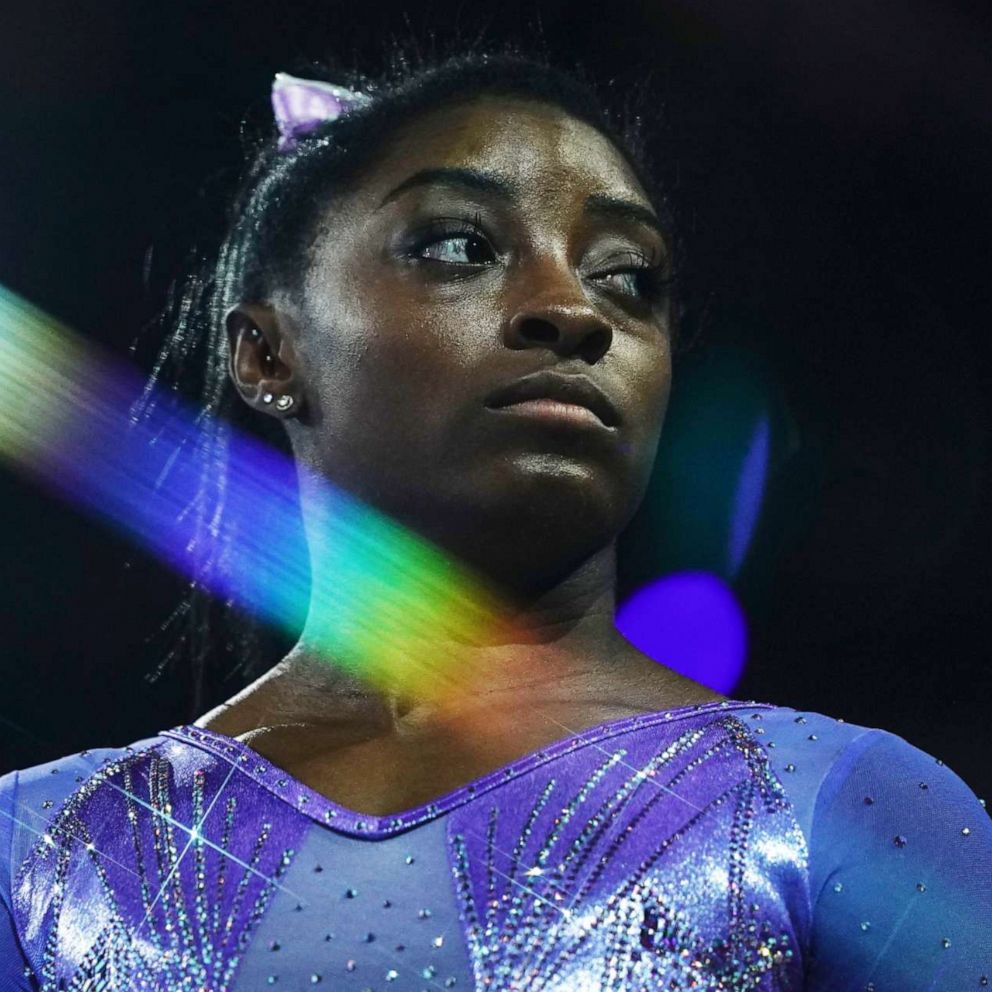Simone Biles opens up about depression she suffered after being sexually abused
The gymnast opened up in the latest installment of "Simone vs Herself."
Simone Biles opened up about the depression she suffered after being sexually abused.
In the latest installment of the Facebook Watch docuseries "Simone vs Herself," Biles said that for a period of time, she struggled to cope.
"I was so depressed," she said. "I slept all the time, and it's basically because sleeping was basically better than offing myself. It was like my way to escape reality. And sleeping was the closest thing to death for me at that point, so I just slept all the time."
In 2018, Dr. Larry Nassar, the disgraced former USA Gymnastics team doctor, was sentenced to 40 to 175 years in prison for sexually assaulting hundreds of girls and women. During the trial, 156 women and girls provided victim impact statements, including Olympic gymnastic stars Aly Raisman, McKayla Maroney and Jamie Dantzscher.
For some time, Biles said she was in denial about what happened and refused to discuss it. However, one day, when she was driving on a highway in Texas, she said, she finally was able to tell her mother that she, too, had been abused. She went public with her story in January, 2018.
"I just remember breaking down and calling my mom," she recalled. "She told me to pull over. She was like, 'Can you drive?' because I was crying so hard."
Nellie Biles added, "She was just hysterical. She didn't say anything, she just cried, and we just cried together because I knew. ... She didn't have to say anything."
Previously, Biles said in an interview with "Good Morning America" that she takes medication and goes to therapy to treat her anxiety. In "Simone vs. Herself," she explained that she takes recovery "day by day."
"With gymnasts, if you get injured ... your 'heal time' is four to six weeks. But then with something so traumatic that happens like this, there's no four to six weeks," she said. "There's like actually no time limit or healing time for it."
"It's OK to say 'I need help,' and there's nothing wrong with that," she added.
If you or someone you know is in crisis, call the National Suicide Prevention Lifeline at 1-800-273-TALK (8255) or contact the Crisis Text Line by texting HOME to 741741.







